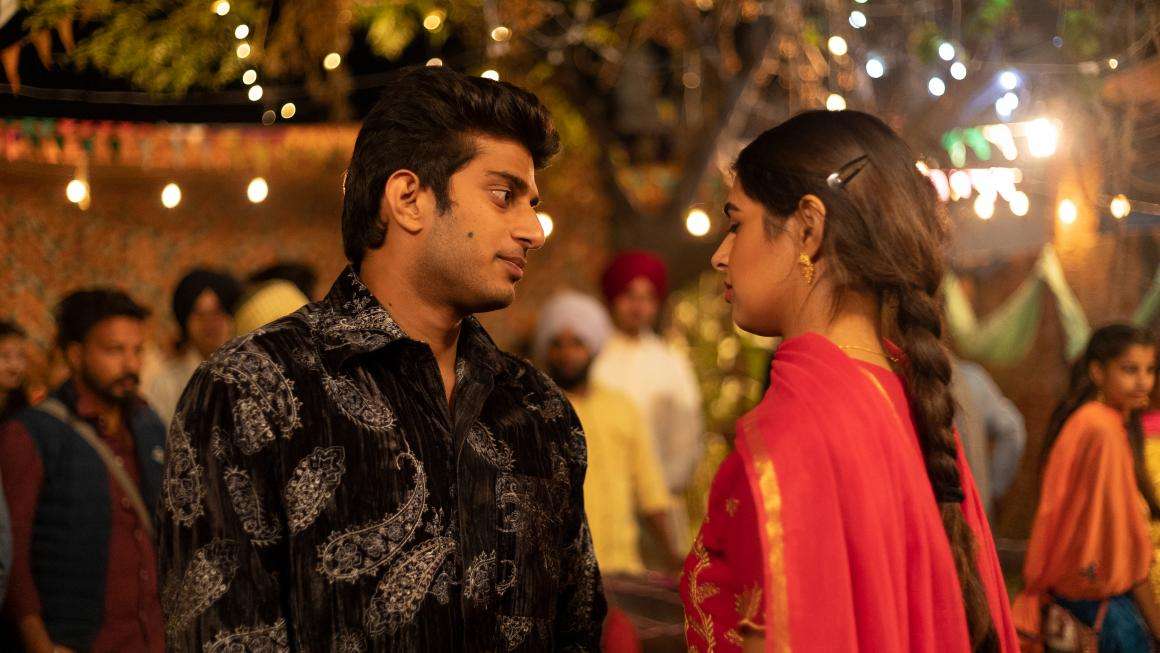Right off the bat, Tarsem Singh’s “Dear Jassi” invokes the classic Romeo-Juliet tragedy in recounting the tale of a romance gone horrifically awry. What the star-crossed lovers at the center of the film go through is elevated to a mythic register, as resonances of their tragedy just being one in many gain sharper, disturbing focus. They aren’t stray exceptions but emblematic of the routine path that awaits any who breach the deeply visible dividing lines of class and privilege and defy notions of traditional honour and respectability. Those who oppose have such a strong grip on money and influence that it only ensures there are no happy endings, nor does justice arrive promptly.
To compound the horrors, there’s also the question of the vicious conditioning, things that one believes should be done to punish a ‘transgression.’ The unshakable patriarchal imagination is equally and as powerfully embedded in the mother as well when she discovers her daughter has brought ‘dishonor’ on their carefully built family prestige. One of the most wrenching, frightening upheavals comes through the distraught confession of Jassi’s (Pavia Sidhu) own mother, who vehemently declares she’d have killed her right at birth if she knew Jassi would sully their honor. Drawn from a real-life case, it isn’t surprising to reveal that “Dear Jassi” heads into an explosively distressing, sickening turn of events.
Thankfully, as gutting the horror and tragedy in the film is, the full bloom of unabashed, heart-fluttering love, dreaming with unrestrained abandon, and the expectant flush within it is also woven with winning charm and absolute devotion in the performances by Sidhu and Yugam Sood, who is the ‘Romeo’ of the tale. Both actors are brilliant at encapsulating the youthful tenderness of love along with the tremulous fear and panic as their characters realize to what degree Jassi’s family can go to strike out their romance. But the lovers are also headstrong and resilient despite the constant threat that surrounds their decision to be together, no matter the odds. It is Jassi who leads the trajectory of the relationship. She emboldens Sood’s Mithu/Sukhwinder as she urges him to at least do something, needling him to take on a sense of direction and purpose.
The two’s romance is almost one of those instant-flame love stories. Jassi is besotted with him the minute she watches Mithu at a kabaddi match, so is he with her. Particularly, the early stage of their dalliance is staged with such delightful cheekiness it took my breath away. An enthralling riff on the ‘balcony’ scene in the original play, the two exchange stolen glances from their terraces, hers towering over his. Jassi is the Indo-Canadian cousin of Mithu’s neighbor.

Settled in British Columbia and raised in an affluent joint family, it is when Jassi is visiting Punjab that Mithu and Jassi fall for each other, resolutely and unwaveringly. But Mithu is not very well-off. He is a peasant whose ambition and future were torn to shreds by the police, who’d often picked him up in the past on falsehoods. Though it is only inferred, we can assume how the brutality Mithu must have experienced in the past has turned him into the shyer, timid and hesitant soul at the point we meet him. Jassi re-ignites a fearless tenacity in him.
Opening in 1996 and spilling into mid-2000, the doomed romance unfolds over a considerable span of time, amidst which Jassi hops back and forth between Canada and Punjab. When she starts writing letters to him from abroad, he has to ask a schoolteacher for help since he cannot read and write in the Roman English script. There’s a lovely touch to the sessions when Mithu relays his responses to Jassi via the teacher acting as the scribe. To ward off the awkwardness of the situation, Mithu and the teacher turn their backs on one another, and the candid intimacy of the letters flows through.
Tarsem Singh slowly builds the devastating love story with warmth and ache. The endearing innocence Yugam Sood brings is impeccably complemented by Sidhu’s blazing doggedness. Together, they carry the viewer through the many troughs, even if the narrative occasionally falters in places, especially on account of the sketchily written characters in Jassi’s family. Yet, Amit Rai’s screenplay doesn’t let these bumps be felt too straining on the film as it deftly uncoils the skein of patriarchy, entitlement, class-propelled strife, and a nexus of a supine police force colluding to suit whichever end leverages or pads them up with more money. “Dear Jassi” operates with restraint, shaded with a creeping feeling that things can go south at any time.
Moments of happiness are laced with precarity and finiteness. It is in these brief intervals Singh excels-stretching out the longing in snatches, before some unspeakably barbaric moment erupts. One of the earliest moments in the film, when it becomes overtly clear how high the stakes in the romance are, involves another couple. As an immediate marker of consequence, the sequence is jolting. Yet, Jassi and Mithu persist. The illusion of escape is fleeting. When the inevitable happens in “Dear Jassi,” Singh retains a hold of formal severity whose gruesome shockwaves, along with the decisive culminating phone conversation, will ripple through the audiences long after the credits roll.






![The Trials of Gabriel Fernandez [2020] Netflix Review – A Shocking Case of Child Abuse, Murder and Institutional Negligence](http://www.highonfilms.com/wp-content/uploads/2020/03/The-Trials-of-Gabriel-Fernandez-2020-768x432.jpg)
![The Cuphead Show! [2022] Netflix Review – One Of The Best Animated Shows That Offers Barrels Of Fun And Action](http://www.highonfilms.com/wp-content/uploads/2022/02/The-Cuphead-Show-768x432.jpg)
